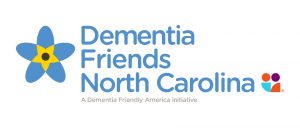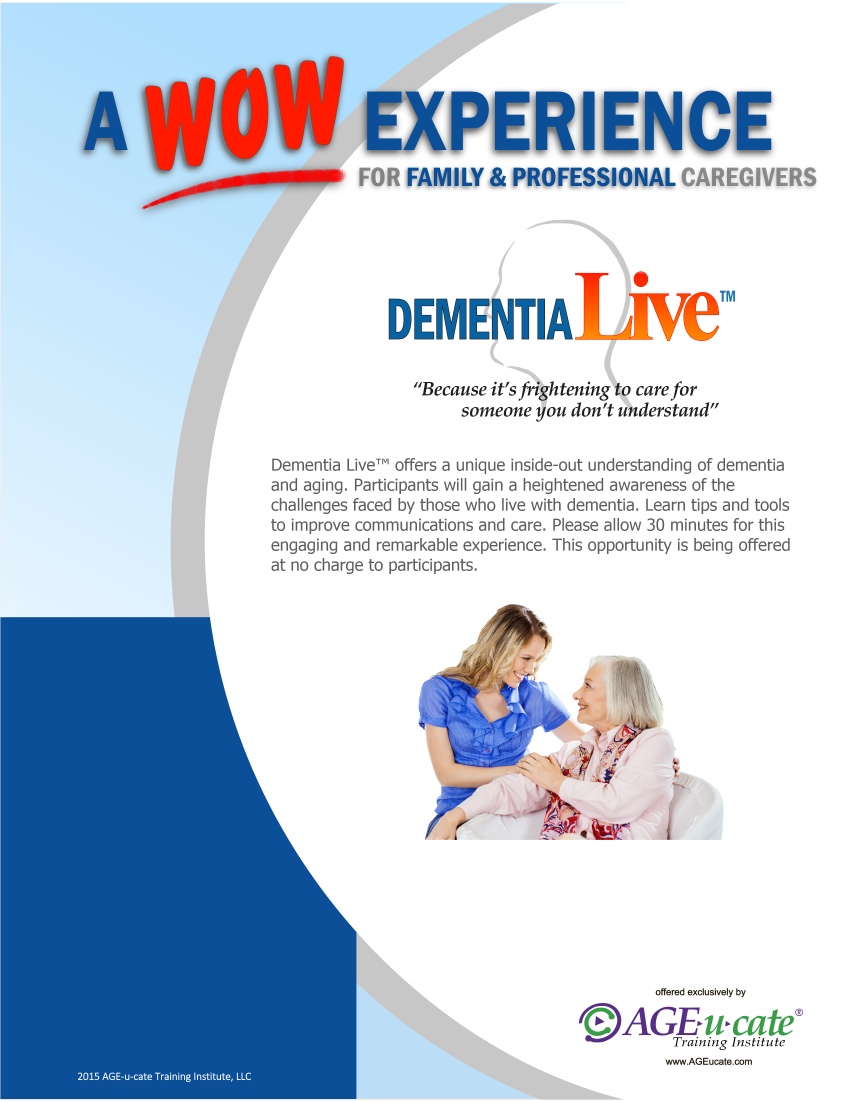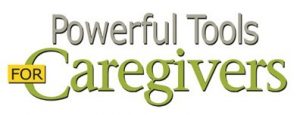Dementia-Capable North Carolina is a project, which began in 2015, was accomplished through a partnership between the NC Institute of Medicine and the NC Division of Aging and Adult Services along with substantial support from AARP North Carolina, Alzheimer’s North Carolina, the NC Alzheimer’s Association, LeadingAge North Carolina and The Duke Endowment. This work cumulated the expertise of our state’s leading experts on Alzheimer’s Disease from the academic, medical, research, behavior health, public health, social health and advocacy sectors as well as persons with dementia and their caregivers.
is a project, which began in 2015, was accomplished through a partnership between the NC Institute of Medicine and the NC Division of Aging and Adult Services along with substantial support from AARP North Carolina, Alzheimer’s North Carolina, the NC Alzheimer’s Association, LeadingAge North Carolina and The Duke Endowment. This work cumulated the expertise of our state’s leading experts on Alzheimer’s Disease from the academic, medical, research, behavior health, public health, social health and advocacy sectors as well as persons with dementia and their caregivers.
This plan is framed using the guiding principles of "Dementia Friendly America" launched in 2015 at the White House Conference on Aging. The original initiative (Dementia Friendly Communities) conceptualized in Minnesota and supported through ACT on Alzheimer's, acknowledges that supporting the needs of families and their loves-ones with dementia begins in every community through grass-roots public-private partnerships.
The goal of the NC strategic plan is to address our state's 5th leading cause of death at the local, regional and state level through collaboration, partnerships and the ongoing leveraging of resources to support families. Alzheimer's disease is a terminal illness and the only top 10th cause of death that cannot be cured, prevented, or slowed. Age is the primary known risk factor for dementia. North Carolina has the 9th fastest growing population of persons over age 65. Currently an estimated 160,000 people are living with Alzheimer's disease which is anticipated to increase to more than 210,000 in 9 years or by 2025.
Dementia Capable NC A Strategic Plan Addressing Alzheimer's Disease and Related Dementias
Recommendations within the Dementia Capable NC Plan
The Issue Brief Dementia Capable NC
This information was been presented to the NC Joint Legislative Oversight Committee for Health and Human Services on March 8, 2015. For more information on this presentation please visit http://www.wral.com/smith-s-wife-to-advocate-for-investments-in-dementia-care/15498724/
All documents can also be found at the NC Institute of Medicine website at www.nciom.org. Please share this plan with your contacts and colleagues within your network.


Powerful Tools for Caregivers is a six-week educational series designed to help family caregivers take care of themselves while caring for a relative or friend with a chronic illness. A family caregiver will benefit from this class whether you are helping a parent, spouse, friend, someone who lives at home, in a nursing home, or across the country.
Program Origins and Development
Powerful Tools for Caregivers (PTC) and all materials were developed over 3 years of pilot testing, refinement and evaluative research to assess the program’s effectiveness.
PTC is based on the highly successful Chronic Disease Self-Management Program developed by Dr. Kate Lorig and her colleagues at Stanford University. Powerful Tools for Caregivers is a national program sustained by extensive collaborations with community-based organizations.
Description of Caregiver Class Content
In the six weekly classes, caregivers develop a wealth of self-care tools to: reduce personal stress; change negative self-talk; communicate their needs to family members and healthcare or service providers; communicate more effectively in challenging situations; recognize the messages in their emotions, deal with difficult feelings; and make tough caregiving decisions. Class participants also receive a copy of The Caregiver Helpbook, developed specifically for the class.
Research and Outcomes
Research studies find high rates of depression and anxiety among caregivers and increased vulnerability to health problems. Caregivers frequently cite restriction of personal activities and social life as problems. They often feel they have no control over events, and that feeling of powerlessness has a significant negative impact on caregivers’ physical and emotional health.
In the years since the program began, a great deal of research, evaluation and revision has been done to ensure its continued value and success. The 6-week PTC class has been shown to have a positive impact on caregiver health for a diverse group of caregivers including rural, ethnic minorities, adult children of aging parents, well-spouses/partners, caregivers at differing stages in their caregiving role, living situations, financial and educational backgrounds. The PTC program is available in English, Spanish, and Korean. Data from class participant evaluations indicates the PTC program improves:
- Self-Care Behaviors: (increased exercise, use of relaxation techniques and medical check ups.)
- Management of Emotions: (reduced guilt, anger, and depression.)
- Self-efficacy (increased confidence in coping with caregiving demands.)
- Use of Community Resources: (increased utilization of community services.)
In 2012 the Powerful Tools for Caregivers program was deemed to have met the highest-level criteria of evidence-based disease prevention and health promotion programs by the Administration for Community Living/Administration on Aging. To access a listing on the NCOA web site go to the NCOA website’s AoA Title III D web page and scroll to page 18
For more information about this program contact:
January Brown
252-638-3185 x 3011
jbrown@eccog.org
